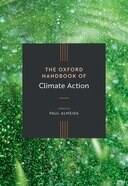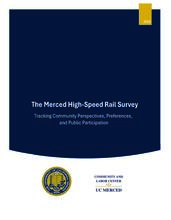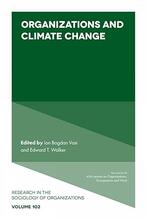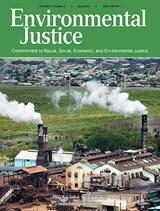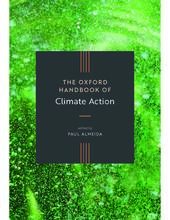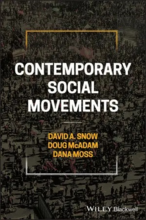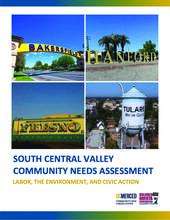Publications
Forthcoming
2026
Climate action encompasses all kinds of efforts to mitigate climate change. The Oxford Handbook of Climate Action examines diverse efforts globally, with chapters discussing activism or policy on every continent. The volume presents major theoretical perspectives and concrete strategies for addressing climate change in the twenty-first century. The Handbook considers both noninstitutional and institutional forms of climate action. Contributors discuss the origins of climate activism as well as important achievements in raising public awareness, increasing participation, incorporating environmental justice, and implementing climate-friendly policies. They also demonstrate why nonconventional forms of collective action are necessary and effective when existing institutions fail to address planetary warming at an appropriate pace and level of urgency. Authors cover climate action planning, renewable energy systems, reforestation, carbon capture and storage technologies, nature-based climate solutions, and just economic transitions. The scholars also identify climate action within broader systems of race, class, gender, and colonialism. Drawing from environmental science, sociology, political science, and anthropology, the Handbook gathers analyses and recommendations from an interdisciplinary field of specialists. The volume is thereby both comprehensive and accessible to students and scholars from various disciplines, making it a vital resource for anyone interested in the study of climate issues.
Report Highlights and Community Preferences
• First set of representative surveys of residents impacted by High-Speed Rail in the San
Joaquin Valley
• More local residents would likely use High-Speed Rail if subsidized
• Preferences for job creation and reduced pollution
• Preferences for local economic development and cultural amenities
• Strong support for community participation in the design of the Merced High-Speed Rail station
and the budgeting process
• Community Benefit Agreements should focus on job creation and affordable housing
Organizational and civic organizing resources provide critical inputs to communities in need. The skills and know-how of climate action tend to be concentrated with scientific experts and in research institutions. In order to reach broader segments of the population in terms of access and participation in climate action, expertise needs to be shared beyond academic and specialized organizational settings. This study examines the correlates of organizational resource sharing via the participation in climate action planning by members of a research university located in a disinvested region – the San Joaquin Valley of California. We consider the organizational, civic engagement, and ideational elements of individual participation in climate action in environmental justice communities with a large-scale census survey. Organizational members with civic capacity experience, environmental identities, and shared lived experience were found to be the most willing to participate in public meetings to address climate change and equity in frontline communities.
Involving residents in meaningful participation in heavily polluted regions faces many obstacles. This study focuses on the conditions that enhance individual involvement in civic initiatives against environmental hazards in one of the largest cities in the United States facing chronic and heightened air pollution exposure. The work is based on a large-scale representative survey of 1,950 residents in Fresno, California. The survey was carried out by a multiracial coalition of community-based organizations. The findings suggest that those individuals with ties to capacity-building organizations and with civic engagement experience were the most willing to attend local meetings about air pollution. In addition, days with higher levels of air pollution also acted as an environmental threat, motivating civic action. The study suggests that increasing public participation in pollution mitigation begins with investing in the types of civic organizations that specialize in capacity building for public engagement in order to advance the environmental justice principles of procedural justice.
This chapter examines the most promising gains of multiple forms of climate action and the most pressing challenges to future advancements. While significant climate action advances have occurred over the past 30 years, the current impediments to further expansion of efforts are substantial. In terms of institutional climate action, city-level climate planning, green energy transitions, and the expansion of nature-based climate solutions represent major gains in addressing the climate crisis. On the noninstitutional front, both the global climate social movement and local antiextraction struggles made substantial progress in raising awareness and influencing policy outcomes. Major obstacles remain for expanding climate action in the areas of civic engagement, climate financing, carbon reductionism, climate denialism, and growing authoritarian populism.
As human and ecological systems face an existential threat from planetary warming, institutions and collectivities are implementing multiple forms of climate action to address the escalating crisis. Examples of major institutional climate action strategies include climate action planning, nature-based climate solutions, carbon markets and taxes, expansion of green and renewable energy, carbon capture, storage and management technologies, climate public education, litigation and referendums, climate reparations, and a variety of non-institutional mobilizations involving climate protest and anti-extraction actions. Most modes of climate action appear to be driven by various strands of environmental threat—the specter of deteriorating ecological conditions in the face of nonaction. This chapter examines the ways environmental threats motivate multiple types of climate action covered in this Handbook.
The environmental justice and climate justice movements have differing histories and trajectories. One of the promising developments in recent years is a growing alignment between the two movements and recognition of how the previous struggles over environmental justice contribute to the climate justice movement. This chapter describes the driving forces behind the development of the environmental justice movement, including history, goals, and outcomes. It also links the environmental justice movement to current climate advocacy efforts and the most promising forms of practicing climate justice in the contemporary era.

